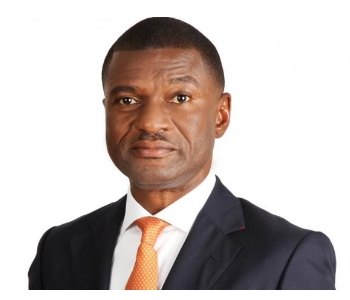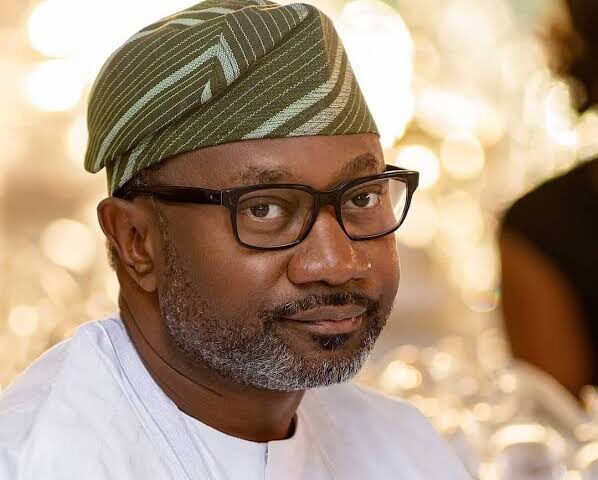Former Minister of Information and National Orientation, Mr Frank Nweke Jr, has advised the Nigerian government to tackle the root causes of high inflation and food scarcity ravaging the country rather than breaking warehouses of goods and closing down shopping centres over allegations of hoarding products.
Nweke in a statement released on Friday via his official X handle bemoaned the action of the Federal Competition and Consumer Protection Council for sealing Sahad Stores, a popular shopping mall in Abuja, over allegations of hoarding goods and subtle price hikes.
Join our WhatsApp ChannelFCCPC had on Friday besieged the shopping mall’s Area 11, Garki branch and sealed it following allegations of disparity between prices on the shelves and what customers had to pay, and also hoarding. The agency accused the management of Sahad Stores of short-changing customers, adding that it would remain sealed until the completion of further investigation.
The action generated reactions from Nigerians who kicked against FCCPC’s action.
Nweke, who was the governorship candidate of the All Progressives Grand Alliance (APGA) in the 2023 general elections in Enugu State said: “It is difficult to accept the justification provided by FCCPC – that prices charged at the checkout counter are higher than the price tags on products on the store shelves.” On the allegation of hoarding, he queried when the government resumed the duty of fixing prices, adding that if that has become the case, the people have a list of items they would want the government to fix the prices. He asserted that since Sahad Stores is always open to customers, it is difficult to believe that it would be hoarding goods.
He observed that with the unprecedented volatility of the naira high inflation and other macroeconomic challenges in the country, businesses would have to respond in a way that would not lead to the loss of their investments.
Nweke advised that the appropriate way to respond to the current economic situation in the country is to tackle insecurity which has prevented many farmers from accessing their farms leading to low agricultural productivity which causes food scarcity.
READ ALSO: AfDB Warns of Unrest Over Rising Commodity Prices
“The effort of the government to improve the food supply will continue to be constrained by the pervasive insecurity across the country,” Nweke stated underscoring the need to improve the safety of lives and properties.
He urged the government to recognize that these are not normal times, hence the need to deliberately reduce the cost of governance, eliminate leakages and corruption, and also go beyond lip services on diversification of the economy by “actively identifying business opportunities ready implementation and provide every needed support for them to take off, create jobs, and earn foreign exchange for the country.”
The former minister also condemned the action of breaking into warehouses legitimately used by business owners to store products because of allegations of hoarding, stating that it is “ill-advised and ultimately counterproductive.” He warned that such action “may become an unwitting signal for miscreants to raid stores and businesses under the pretext that the government claims that items are being hoarded.”
READ ALSO: FCCPC Reopens Supermarket Sealed Over Misleading Pricing
“Who will want to continue to invest if the government that should ensure the security of the businesses are the ones endangering them using populist rhetoric?
“So, you destroy people’s investments and empty the warehouses and the stores. The simple question that I have for the government is, after now, then what?” he queried.
He remarked that such actions regarding price control is inconsistence with the free-market principles that the government claimed underpinned its policy choices made since May 2023.
While expressing optimism that the country can survive the challenging situation, Nweke urged the government to jettison partisanship and reach out to everyone for a solution.
He said the Federal Government can reconstitute the Presidential Economic Advisory Board and engage individuals who have the capacity, experience and track record to support the administration and implement policy options and economic solutions proposed by the council.
He mentioned some names like Ngozi Okonjo, DG World Trade Organisation (WTO); Oby Ezekwesili, former minister of Education; Akin Adesina, President of the African Development Bank; Benedict Orama, Afreximbank president; Atedo Peterside, founder of Stanbic IBTC Plc; Sanusi Lamido Sanusi, former CBN governor; Bayo Ogunlesi, investment banker; Ayo Teriba, Biodun Adedipe, Osita Ogbu, Ade Ojowu, and Jonathan Aremu.
Victor Ezeja is a passionate journalist with seven years of experience writing on economy, politics and energy. He holds a Master's degree in Mass Communication.




















Follow Us